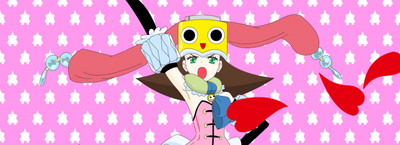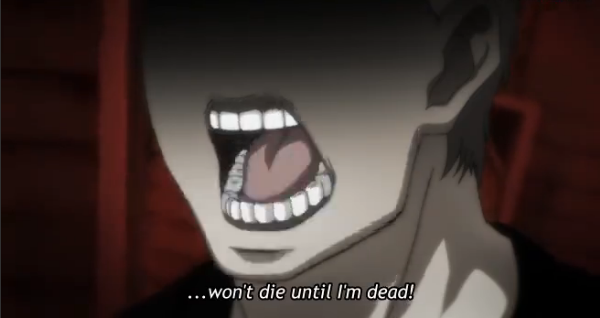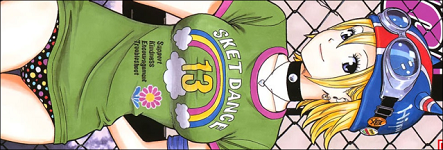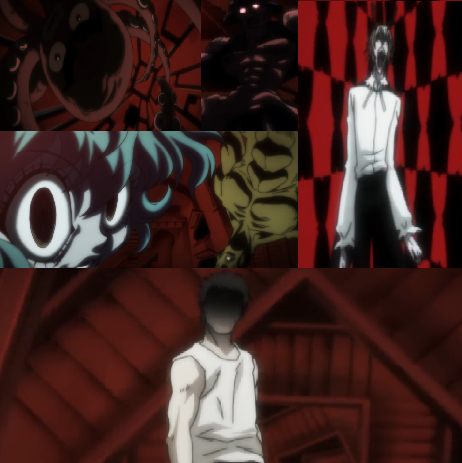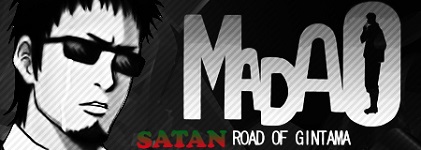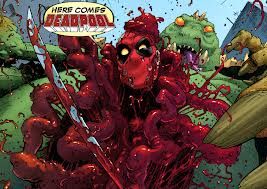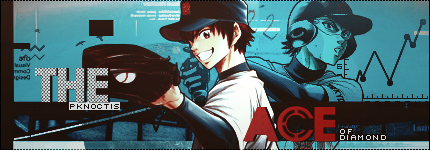Greatness personified, this episode was. I can't even imagine how powerful the end to this arc will be.
Truth was the overriding theme this episode. I lost track of how many times it along with "lies" was mentioned throughout. It's beautifully poetic because this episode served as the climax and and end of the character arc of two Ants: Pouf and Welfin. The three-way confrontation that occurred here was put together deliberately.
We have Pouf and Welfin, two characters that achieved their objectives primarily through lies, deceit, and manipulation. They are both put in a situation where they can't lie. The King's enhanced abilities allow him to read anyone before him like an open book. Pouf and Welfin's tactics are rendered utterly useless. How do they react?
By resorting to the truth, of course. Pouf says it himself; he'll get what he wants by telling the truth. Welfin tells the truth as well. He doesn't lie, doesn't run away, but instead screams his true feelings, that he will never accept Meruem as King, that his only king is Gyro. Both speak the truth, and in the end, it saved their lives far more effectively than lying would have. Welfin already had a great character moment back with Ikalgo, and it is continued here.
More interesting than that, though, is the episode's, and indeed the Chimera Ant arc as well, paradoxical message. It opened with a montage of human cruelty, condemning the species as a whole, and emphasizing in particular how some of us live in great prosperity while willingly allowing other helpless people to starve and die in poverty. This is a direct callback to the specific point that the King mentioned when he spoke with Netero before their battle: that people living a wealthy lifestyle on one side of the border allow death and misery to reign on the other side. And of course, this is all valid. History shows us that human cruelty knows no bounds. Yet, the end of this episode, where the King wishes Welfin a happy life as a human, and where the narrator implies that the King has officially shed his malicious side, suggests that to possess humanity is a good thing.
That's why this arc's message is not so cut-and-dried. Togashi is not saying that humanity is evil, the Ants were angels, end of story. This is a complex, ambiguous mesh of themes and characters, and the overall message is, in my opinion, more balanced. Yes, humanity is capable of unrivaled brutality and evil, but it also possesses good qualities. All this has been implied throughout the arc, but never as blatantly and sharply as this episode. Acquiring human emotions was both the rise and fall of the Chimera Ants, as it is for humanity itself. And people like the King and Komugi are examples of the goodness humanity is capable of. The world is miserable, but it's not beyond hope. Human nature is not inherently evil. Humans can be good and bad; it seems Togashi thinks that we simply opt to be evil when we have the choice not to.
Of course, all of this is even more complex and nuanced than that. Perhaps by virtue of human nature, we end up becoming monsters anyways. Look to Gon's story for an example of this; a little boy forced to grow up and become a heinous beast out of a very human desire to avenge someone dear to him. Yet, that core humanity is really what resulted in Gon becoming so inhumane throughout the invasion. This arc can be looked at with a much more cynical, and indeed more Togashi-like perspective: we are often monsters, and ironically it is our humanity that leads to that. There can be more than one interpretation, which is what makes it so fascinating. Regardless, Togashi's overall point is abundantly clear: by contrasting us with the Ants, it becomes clear that we are more monstrous than they'll ever be. Our inhumanity is what killed the King, with his new found humanity, didn't it? (Yes, he's not dead so far, but he's sure to fall behind his Royal Guards due to the radiation.)
Interesting bit; we saw a human skull show up behind Meruem in this episode, though not in the same malicious context as with Netero. Still, it's fitting, as Meruem , like humanity, has evolved a great deal and has become much more human, now that he remembers Komugi and all she taught him. Again, though, Meruem's transformation is portrayed as positive, despite the skull, which was earlier used to indicate the evil of the human race. I think it may have been mentioned, but when as Gon was transforming (or evolving...) in his fight with Pitou, his face looked similar to that. Interesting use of the skull imagery, isn't it?
Looking back at the arc as a whole, it's especially brilliant how many facets of the human condition that Togashi explored throughout the arc, both through the humans and Ants. Vengeance (Gon), anger (Youpi and Knuckle), love (Komugi and the King), war (the whole story), loyalty (the Guards), etc. Brilliant, really.
Pouf's character arc culminated in this episode, and it's clear in the end that he was a failure. It's rather tragic, that for all his devotion and loyalty, in the end he meant almost nothing to the King. He will die broken, a victim of his intense and passionate emotions. For everything he tried, the bond between Komugi and the King could not be broken.
I'm pleased that Welfin lived. I've taken a great liking to him, and would have never have guessed when he was introduced that he'd be key in eliminating the King as a threat, or restoring his memories of Komugi. A clever and unexpected move from Togashi, and the best part is that it all ties in seamlessly with Welfin's character arc. That's not as easy as it looks. And as mentioned before, it's fitting that in the end the truth ultimately saved Welfin's life, symbolically completing his character arc. And for all his lamenting that Ikalgo had threw him off by changing him, it's clear that Welfin is glad he's the way he is now.
And finally, the best scene of the episode: The King remembering Komugi. They're my two favorite characters of this arc, so it was a great moments, and it's fitting the arc's end focus on them. Representing Komugi's value to the King by showing him and her alone playing Gungi in a vast, blissful field was fantastic and beautiful. A feeble, blind human girl is what this ferocious, mighty being most values. Love it.
I'm not prepared for next week in the least. |
